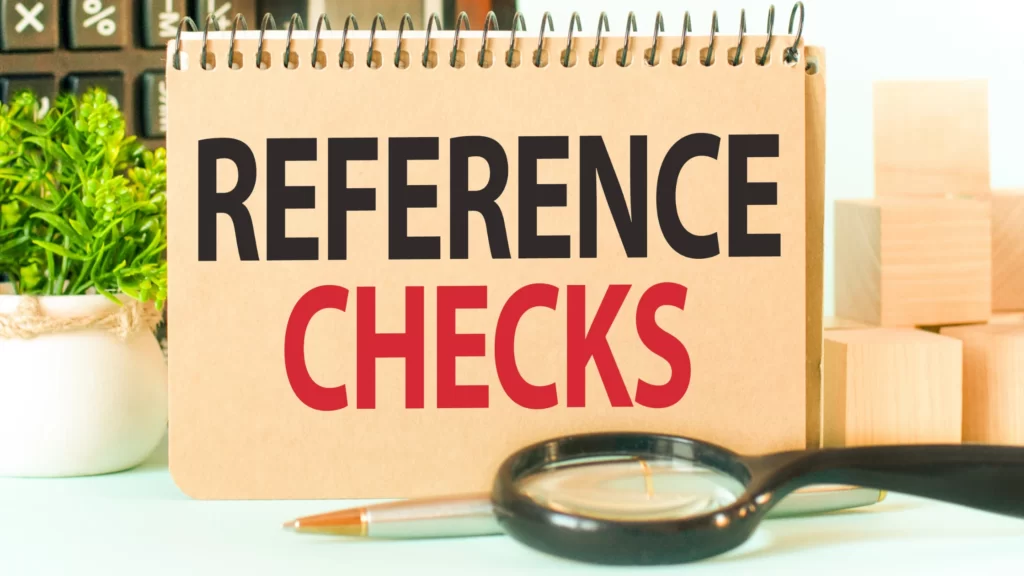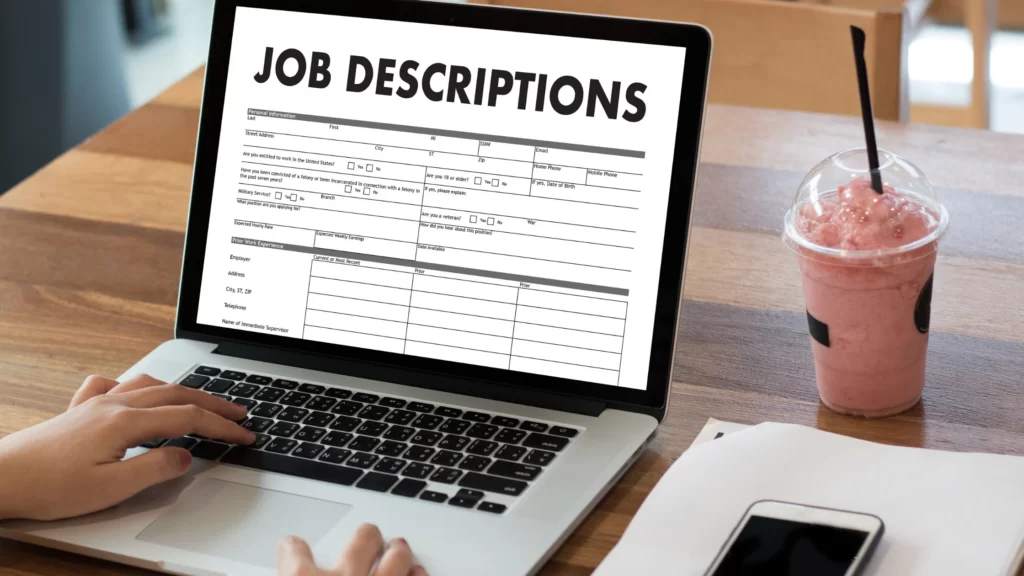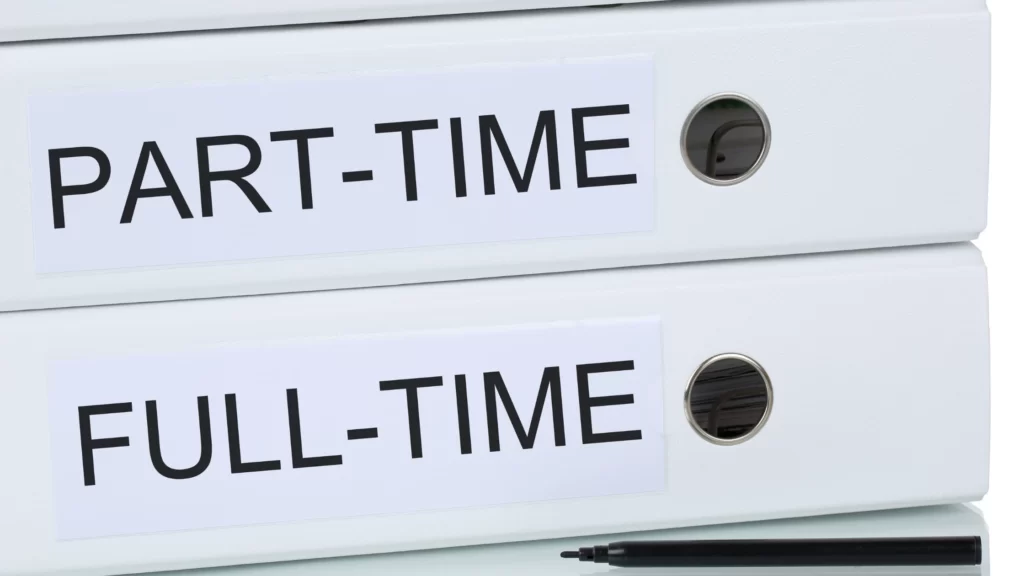References in a CV should be considered. If you have a good interview and seem to be a suitable candidate for the vacancy, the recruiter can check your background before offering a job. So the information of references is relatively important.
How to choose references in a CV?
References are one of the optional elements to include in your CV. In some businesses, management positions related to finance such as chief accountant, purchasing, etc., most require candidates to provide reference information. Investigating the candidate’s background is one of the common tasks of human resources personnel when recruiting for an important position.
Usually, after the interview, you and the employer feel quite satisfied and need a little more information to confirm and confirm your work background as well as your previous work history. Human resources personnel will conduct a context investigation through information provided from references in your own CV.
However, not all of us can choose the correct reference to provide more comprehensive information for us.
Consider the time factor
Time is a fundamental factor that should be considered. Specifically, it is not the time calculated according to the working date, but the actual time you and the reference directly connect and exchange with each other through the work.
I stress this point because the size of the business or project you work on has a big impact on how long you actually interact with other individuals at work. If you work in a medium-sized enterprise or small project, the frequency of meeting and exchanging with other members or departments, coordinating work will be much more often.
When you are a member of a large organization and a large project, the possibility that you do not know about employees in other departments, even the department you are working in, is very likely.
You can see businesses every year have Teambuilding programs where people meet and interact, and play cooperative games. This is an activity not only to maintain coordination and solidarity among employees but also an opportunity for everyone to break the distance and communicate with each other.
They have an impression of you
When including someone in the references section of your CV, be aware and make sure that the person has actually been in contact with you for a significant amount of time. Enough for them to get a certain impression of you. Imagine the recruiter calls your reference and he or she responds: “I’m not impressed with he/she at all”. It’s a bad situation.
Interactive Workload
The amount of work you and your reference do together is a second factor to consider when deciding whether or not to include him/her on your reference list. It is not enough just for one of your individuals to know you. What employers want information about is how you performed at your previous employer in general.
If the recruiter receives a general answer of “I don’t know very well”, “without any incidents or mistakes”, … can not solidify the decision to recruit you for the business.
So a reference who understands how you do the work and can make objective judgments will be very valuable. To do this, they not only have an impression of you but also have to have a certain amount of time to interact with you a lot.
Select the reference level
Selecting a reference rank to meet the criteria for how long to contact you and engage in a substantial amount of work is true quite a lot. It could be your boss, your co-worker, or even your subordinates. With the variety of subjects you have ever come into contact with for reference information, what will be the right choices?
Indeed, when choosing one of the three popular objects that I mentioned above to include in the reference information, we will always have our own advantages and disadvantages. There is no single choice that is perfect for everyone.
Referees are superiors
From my personal perspective, a few advantages and disadvantages when choosing an object can be listed for your reference for your decision.
Your boss who can give suggestions for your previous work will be a great choice. As someone who has directly managed you, understanding your work results, it is clear that your achievements, if confirmed by your superiors, will add a solid reinforcement. In addition, the fact that a candidate is evaluated by a superior in the context survey will have high reliability.
However, one downside of choosing a superior as a reference is that you cannot fully understand the thoughts and judgments of your superiors about yourself. No matter how open and fair the business environment is, there is always a certain distance between employees and direct managers. And sometimes your boss doesn’t really understand everything about you except the number of work results.
References are colleagues
Choosing a superior as a reference is perfect when employers want to refer to specific numbers, data, and work results. Other intangible factors such as personality, coordination, etc. will not give an accurate judgment unless the candidate’s superiors really have the heart and care, important to develop their team.
Choosing colleagues as a reference is also a good option. It is possible that in a department each person will take on a different task. Therefore, not necessarily colleagues will fully understand the work and results that you have done. Therefore, referencing performance information with references who are colleagues of the candidate does not necessarily receive quality feedback.
However, in terms of coordination, information sharing as well as team-related criteria that employers want to investigate, colleagues will be one of the particularly effective channels. Within the business, your colleagues will probably be the object you interact with most often. Examining information about people and personalities from colleagues will mostly be quite effective compared to other subjects.
References are subordinates
If the candidate is a person who has held a management position, a third channel can be referred to as “subordinate”. Unlike the two subjects mentioned above, subordinates will not be able to provide employers with information about the candidate’s achievements, work results, or the candidate’s ability to coordinate with other colleagues.
What a person can provide information about his superiors is leadership style, management capacity, orientation, and division of work for the members below.
Especially for candidates applying for management positions, consulting information from subordinates in the old unit will play an important role. Maybe you are a good employee but not necessarily a good manager. The achievement built into the performance of managers is not only personal.
There is no perfect role
There is no perfect role for determining what a reliable reference is. Therefore, to investigate the candidate’s context, recruiters will normally choose all three subjects that I mentioned above if you agree. And if you are a candidate looking for a job, try to orient yourself to find the most suitable references.
When References in a CV speak well for you
Choosing a reference who speaks well about you is not too strange, especially for candidates with work experience.
Choosing the most suitable reference for yourself is also one of the factors you should consider. Once you’ve determined which ranks or relationships are appropriate to assist you in providing your reference, choosing the right individual from among those relationships isn’t really easy.
It can be affirmed that it is difficult for anyone to go to work to be loved and respected by everyone. The office is not only seen as a second home, where you spend at least eight hours a day working and interacting. And above all, in daily work, work conflicts are inevitably inevitable.
It doesn’t matter if individuals conflict at work and find common ground or a compromise to bring about a common solution.
However, many work conflicts easily turn into personal conflicts. This is the most difficult and long-lasting conflict to resolve. It exists not only in terms of work, but sometimes it’s just “hate seeing it”. Quite a few businesses have built a friendly and open culture where everyone clearly communicates with each other to limit this problem.
The reason why I mentioned those two types of conflicts in the working environment is that I want to remind you that it is important to minimize personal conflicts. In particular, the references in your CV should be people who can make an objective assessment of you and provide unbiased comments.
If that person has supported you in the past, a perfect choice to include on your CV. If that person had a conflict with you on a professional level in the past and the two of you later found a common ground. Also a good choice for references.
However, do not include people who have personal conflicts with you on your CV. That would be an extremely wrong choice. Although the results of your work they know very well, as well as about your personality.
There’s also the dark side of people who have a personal conflict with you, that they probably won’t be too happy to see you get a new job. Especially when you are selected by a more reputable business or at a higher position than your current one. These things only deepen the personal stereotype that you are the lucky one to get that job.
Because background investigation is part of the hiring process, you won’t receive an offer letter right after your interview. Therefore, one of the negative feedback about you can make the employer feel a lot of hesitation.
It’s not uncommon for context investigations to not reinforce what you showed in the interview, but also reveal other parts of you that didn’t show up during the brief interview.
Therefore, choose a reference when you are sure that they can make a positive or objective judgment about you.
Ask references to confirm the information
Make sure you get a confirmation reference that will help you verify information with recruiters.
This is not a superfluous job and does not take up too much of your time. With the development of modern technology and so many different ways of connecting between individuals, it is not uncommon for you to become invisible to someone who was previously quite close.
There are 24 hours in a day for each person, and with the increase in the number of individuals who need to interact, the time spent with each individual will decrease. Relationships need to be nurtured over time.
With such a large number of individuals every day we interact, it’s quite possible that someone is out of touch for some time beyond your memory. The more the Internet developed, the faster people passed each other.
Contact the reference in a CV in advance
When you want to include an individual’s information in the list of references in your CV, take the initiative to discuss it with them before putting information on your CV.
You need to share with the other person about your aspirations and beliefs in them and expect to receive their approval. This gives potential references a sense of how much you believe in and value them, and avoids a situation where employers contact the reference but they are unable to recall their impressions of you in time.
Unexpected opportunities
Proactively contacting potential references also gives you an unexpected benefit. Since that person has known about you in the past through work, and most likely in the same industry as you, they will also have certain connections in the field of work that may be of interest to you.
Not only can they give you positive feedback about your recruiters after you ask for help, but they can also know about other vacancies that are “not posted online or will not be posted online” which in the HR industry calls “internal recruitment”.
There may be a small probability that a certain business needs someone like you and this reference has information. If your relationship with them is good enough, they can completely mention you, and even send your CV to the unit that needs recruitment.
Learn more about yourself
There is sometimes a long-term benefit from exchanging information with a reference that no one else can help you with. You cannot objectively judge yourself and your blind spots. You need someone who can tell you what areas you still need to work on.
Every day we are reeling with work, with society, even if we have free time, most of it will be used for personal study and entertainment. The silence to reflect on what you have done before is something very rare in fast-paced modern life.
A good reference will comfortably tell you what they think about you in your previous job, what you have shown, about your image in the eyes of others, etc. Factors that you alone do not see all aspects with absolute accuracy.
We don’t have too little time, it’s just that we often assume what we do is right and rarely look back.





